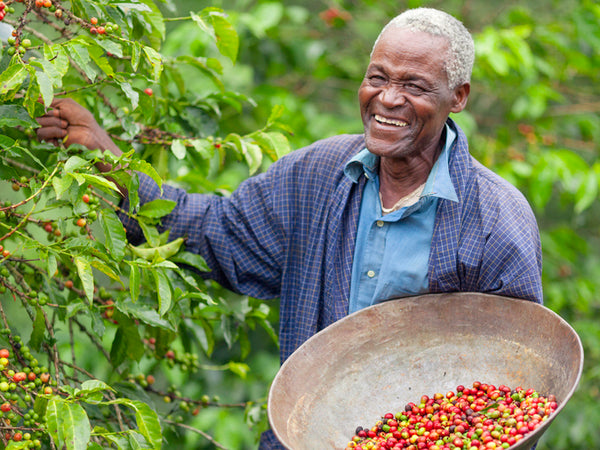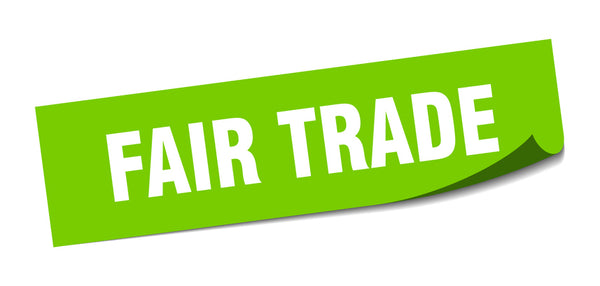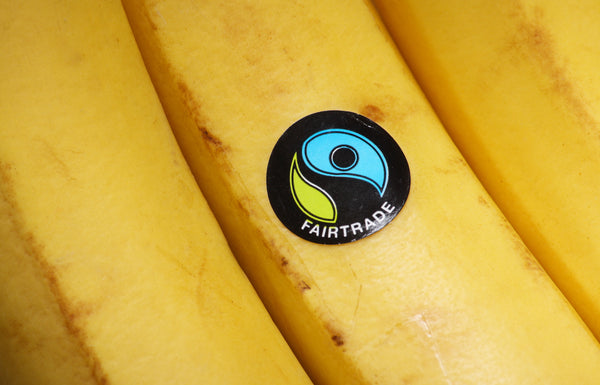What does fair trade mean?
Fair trade is when products including food, drink and crafts, are sourced through a fair supply chain. This means the farmers, producers and artisans are all treated fairly. Standards of dignity, respect, equality and fairness are agreed, certified and met.
What is fair trade?
Fair trade allows farmers, producers and artisans to be paid a fair price for the things they make and to have better working conditions.
Some products that are not fair trade are made by workers who are not paid enough to live. The people might have to work in unsafe conditions and they might be children.
When a consumer buys a fair trade product they know the workers that made the product have been treated fairly.

What are the benefits of fair trade?
The benefits of fair trade include paying farmers a fair price for their produce and labour. This helps to eliminate poverty. Fairtrade focuses on sustainability and global justice.
When did fair trade start?
The fair trade movement began in the 1940s and 1950s.
The first fair trade certification was introduced in 1988 by a Dutch non-governmental organisation (NGO). More on this below!
The Fairtrade Foundation was established in 1992. Several organisations were involved in establishing the Fairtrade Foundation, including CAFOD, Christian Aid, Oxfam, Traidcraft, and the World Development Movement
Is there more than one fair trade logo?
Yes, there is! There are lots of different logos and each one means something slightly different. You can learn more about them on the Fair Trade Winds website.
The first Fair Trade Label was used in 1988. It was created by a Dutch NGO to sell coffee. The label was called ‘Max Havelaar’. Max Havelaar is a Dutch book about someone similar to Robin Hood.

12 Fair Trade Facts!
- Fair Trade and Fairtrade are not the same thing. ‘Fairtrade’ is a trademarked labelling system and ‘Fair Trade’ is the movement. If you see a Fairtrade logo on a product it means that the product meets the criteria set out by the Fair Trade movement.
- There are over 6,000 Fairtrade products available.
- Fairtrade products are sold in over 120 countries.
- There are over 1.5 million farmers and workers in Fairtrade-certified producer organisations
- Fairtrade celebrated its 30th birthday in the UK in 2024.
- In the UK 7% of coffee sold is Fairtrade. About 2% of coffee sold globally is Fairtrade.
- In the UK ⅓ of bananas sold are Fairtrade. The first UK Fairtrade Mark banana was sold in 2000.
- The first product in the UK to get the Fairtrade Mark was Green and Black’s Maya Gold chocolate bar in 1994.
- Fairtrade products include food and non-food items. Non-food items include toiletries and clothes. You can view a full Fairtrade product list here.
- Divine Chocolate is the only chocolate company that is fully owned by farmers. See all Fairtrade chocolate products here.
- There are more than 1,000 Fairtrade schools in the UK. Read this blog to find out how you can become a Fairtrade school.
- In 2001 Garstang became the world’s first Fairtrade town. There are now over 650 Fairtrade towns in the UK.









19 Comments
I’m in love with this website!
its so good it helped with homework.
This website is so good!
this help me good
fairtrade is good